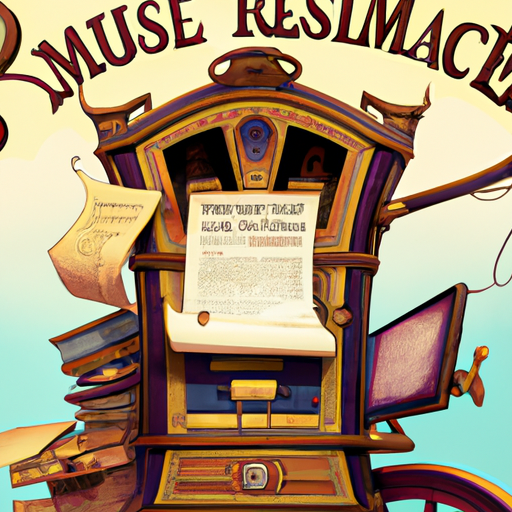Revamping Your Resume: How Far Back Should It Go?
Introduction
In today’s uncertain job market, having a standout resume that is tailored to the job you’re applying for is essential. With hiring managers spending only a few seconds scanning resumes, it’s crucial to include relevant and impactful information. One common question job seekers ask is how far back their resume should go. In this article, we’ll provide a comprehensive guide on resume length based on your experience level and the type of job you’re seeking.
Resume Length: The Basics
When it comes to resume length, data shows that the average resume is around 489 words long, with the cutoff point for a single-page resume being approximately 380 words. This means you need to be selective about what you include and focus on highlighting your most relevant experience. The length of your resume depends on your experience level and the role you’re applying for.
For Entry-Level Roles
If you’re applying for entry-level positions, your main concern may be not having enough to include on your resume. In this case, you should highlight relevant coursework, internships, volunteer work, and positions in student organizations. Babysitting, part-time and summer roles, and relevant volunteering experiences can also be valuable additions. Emphasize the skills and knowledge you gained from these experiences, as hiring managers understand that you’re just starting your career.
For Mid-Level Roles
For mid-level roles, which typically require 5 to 10 years of experience, it’s essential to focus on recent growth and relevant skills. Begin phasing out your high school experience and narrow down your work history to highlight your most significant achievements. Tailor your resume to match the requirements of the roles you’re interested in, showcasing your professional growth and demonstrating your ability to contribute strategically.
For Senior-Level Roles
When applying for senior-level positions, limit your work history to the past 10 to 15 years. Your resume should be laser-focused, excluding high school jobs and early entry-level positions. Highlight your managerial and leadership experience, demonstrating significant growth and showcasing your ability to drive results. By not going further back than 15 years, you also reduce the risk of age discrimination.
Should You Include Gig Work?
Yes, incorporating gig work into your resume can be beneficial. With side hustles becoming increasingly common, it’s essential to showcase the skills and experiences you gained from freelance or gig work. This type of work often offers opportunities to develop different skills than those obtained in full-time roles. Include relevant gig and freelance experiences that align with the skills hiring managers are seeking. This additional experience demonstrates your versatility and can set you apart from other candidates.
Should Academic Work Be Included?
The inclusion of academic work depends on the nature of the role you’re applying for. If you’re pursuing academic positions, including publications, patents, and papers can be advantageous. Recent college graduates may want to include relevant coursework and highlight what they learned. However, as you gain more professional experience, academic work should be gradually phased out. Recruiters and hiring managers are primarily interested in your job-related experience and the skills you acquired. If you have higher education degrees, you can create a separate section at the bottom of your resume to showcase them.
Workshopping Your Resume
When revamping your resume, take a critical look at your experience, consider the requirements of the job you’re applying for, and include only recent and relevant information. Tailor your resume to highlight your career growth and the value you can bring to potential employers. By focusing on the most impactful experiences and skills, you’ll create a resume that stands out and increases your chances of landing an interview.
Closing Thoughts
Crafting an effective resume involves striking a balance between including essential information and keeping it concise. The length of your resume depends on various factors, including your experience level and the type of role you’re pursuing. Remember to highlight the most relevant and recent experience, tailoring your resume to match the job requirements. By presenting a well-crafted and tailored resume, you increase your chances of catching the attention of hiring managers and securing the job you desire.

